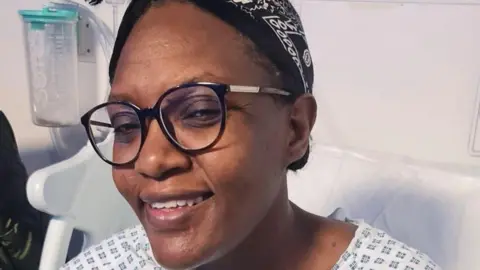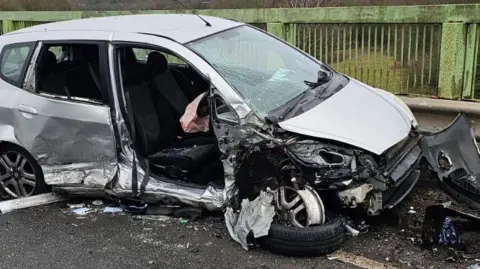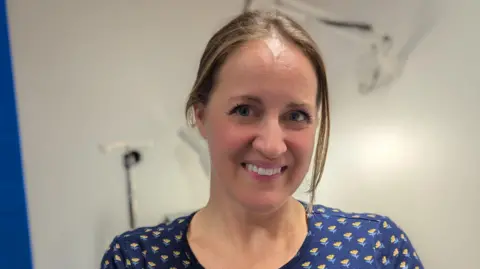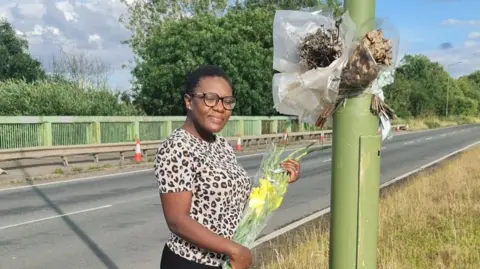'London trauma centres help ease my nightmares'
 Shelah Thomas
Shelah ThomasA woman who was unable to walk after a serious car crash has been helped by a new scheme aimed at supporting London during major incidents, including terror attacks, by having psychologists in hospitals' trauma centres.
Shelah Thomas, from Luton, was driving to work in February 2024 when she was caught in a multiple-vehicle pile-up and had to be cut out of her car.
She sustained injuries to her spine, brain and hip, and needed help to walk again. But the impact was not just physical. Shelah also suffered mental health effects, including memory loss and anxiety.
"I was really struggling to deal with everything that had happened, with the sense of loss I was feeling," she said.
 Shelah Thomas
Shelah Thomas"I couldn't sleep or stop crying, I kept having nightmares and flashbacks.
"I didn't realise mentally how the accident had affected me."
A pilot project at London's four major trauma centres helped Shelah rebuild her life through psychological support.
'Healing the mind'
The project involves psychology teams placed in the trauma centres at King's College Hospital, Royal London Hospital, St George's Hospital, and St Mary's Hospital in Paddington - where Shelah was treated.
The scheme has a wider aim too: it allows support to be quickly stepped up in the event of a major incident in London, from serious crashes to terror attacks.
 Shelah Thomas
Shelah Thomas"In something like the Hainault sword attack or the Wimbledon car crash, the major trauma centres' psychology teams come together to provide support not just for the victims but also for witnesses, families, and of course for medical staff as well," said Professor Karim Brohi, clinical director of the London major trauma system.
Shelah was treated by lead clinical psychologist Dr Helen Devonshire, who said: "There is growing recognition that trauma healthcare is not just about fixing the body but also healing the mind."

A study has found that 30 to 40% of patients who experience major traumatic injury report serious long-term psychological disorders.
"We know around 35% of trauma patients struggle to resume employment and education", said Dr Idit Albert, clinical lead for the pan London major trauma psychology network.
"So it's really important that we can identify and treat psychological difficulties at a suitably early stage."
The pilot project, which is looking to be renewed, supported more than 5,000 patients - both adults and children - in its first year.
It is funded and led by the NHS London Violence Reduction programme, coordinated by Imperial College Healthcare NHS Trust and West London NHS Trust.
 Shelah Thomas
Shelah ThomasShelah said the psychology team helped her return to work and piece her life back together.
"I'm able to go out and do little tasks that people take for granted, like shopping, getting back into my car, and driving to work," she said.
She has also been able to return to the scene to lay flowers for one of the drivers in the accident who died.
It brought some sense of closure and was a huge step in her ongoing recovery, she said.
Listen to the best of BBC Radio London on Sounds and follow BBC London on Facebook, X and Instagram. Send your story ideas to [email protected]
